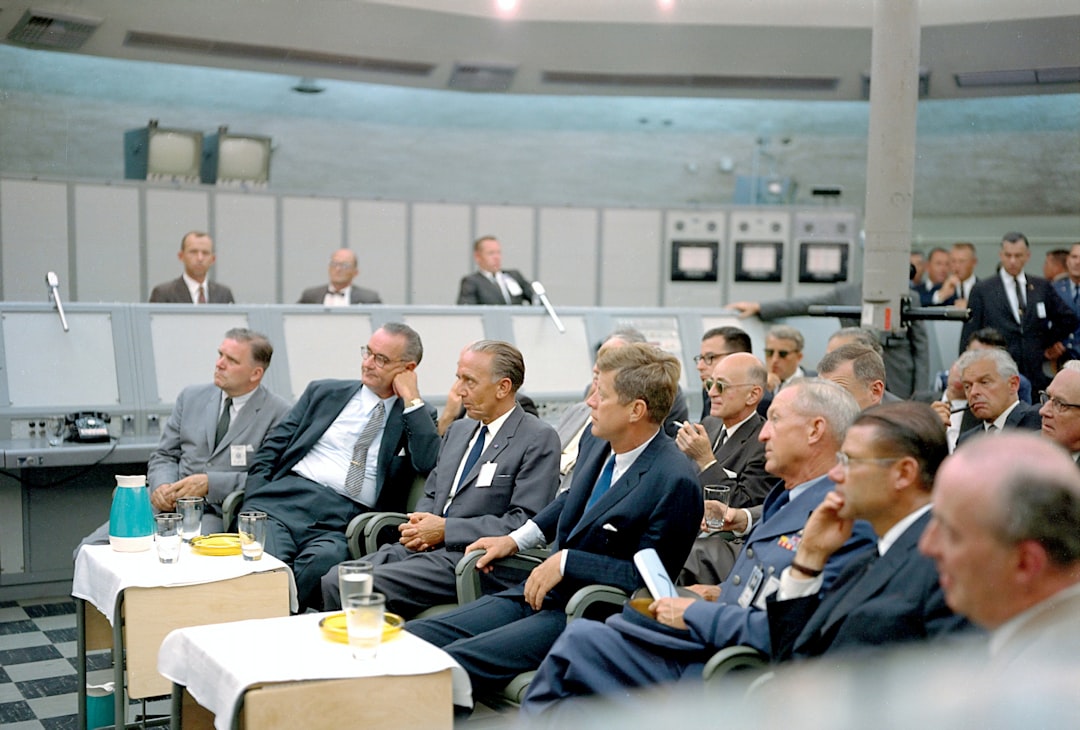In New York City, the influence of real estate developers on local politics is profound and multifaceted. Developers wield significant power, often shaping the urban landscape through their financial clout and connections. Their ability to fund political campaigns and lobby for favorable zoning laws allows them to play a pivotal role in decision-making processes that affect the city’s growth and development.
This relationship between developers and politicians can lead to a symbiotic dynamic, where the interests of both parties align, often at the expense of community needs and public welfare. Moreover, the presence of real estate developers in political spheres raises questions about transparency and accountability. As developers seek to maximize their profits, they may push for policies that prioritize profit over public interest.
This can manifest in the form of luxury developments that cater to affluent residents while displacing long-standing communities. The political landscape becomes a battleground where developers advocate for their projects, often leveraging their financial resources to sway public opinion and influence legislative outcomes. The implications of this influence are far-reaching, affecting everything from housing affordability to urban planning.
Key Takeaways
- Real estate developers have a significant influence on NYC politics, often through lobbying and campaign contributions.
- Zoning laws play a crucial role in shaping real estate development in NYC, impacting the type and scale of projects that can be undertaken.
- Gentrification has political ramifications in NYC, leading to debates over displacement, affordable housing, and community preservation.
- Politics play a key role in public housing, influencing funding, maintenance, and the development of new affordable housing initiatives.
- Rent control and rent stabilization are hotly debated political issues in NYC, with implications for both tenants and landlords in the real estate market.
Zoning Laws and Their Impact on Real Estate Development in NYC
Zoning laws serve as a critical framework for real estate development in New York City, dictating how land can be used and what types of buildings can be constructed. These regulations are designed to promote orderly growth and protect the character of neighborhoods. However, they can also be manipulated by developers seeking to maximize their returns.
By lobbying for changes in zoning classifications or variances, developers can transform areas, leading to significant shifts in the urban fabric of the city. The impact of zoning laws on real estate development is evident in various neighborhoods across NYFor instance, areas that were once predominantly industrial have been rezoned for residential use, resulting in a surge of luxury condominiums and high-rise apartments. This transformation often leads to increased property values and rents, which can displace existing residents and alter the demographic makeup of communities.
As developers navigate the complexities of zoning regulations, they often find themselves at the intersection of legal frameworks and political negotiations, highlighting the intricate relationship between law and real estate interests.
Gentrification and its Political Ramifications in NYC

Gentrification is a phenomenon that has reshaped many neighborhoods in New York City, bringing both revitalization and controversy. As wealthier individuals move into historically lower-income areas, property values rise, leading to the displacement of long-term residents. This process is not merely an economic shift; it carries significant political ramifications as well.
Local governments often find themselves caught between the desire for economic development and the need to protect vulnerable populations. The political discourse surrounding gentrification is complex, with advocates arguing that it brings necessary investment and improvements to neglected neighborhoods. However, critics contend that it exacerbates inequality and erodes community ties.
The challenge for policymakers lies in balancing these competing interests while ensuring that development benefits all residents. As gentrification continues to unfold across NYC, its political implications will remain a contentious issue, prompting debates about equity, representation, and the future of urban living.
Public Housing and the Role of Politics in Real Estate
| City | Number of Public Housing Units | Percentage of Population in Public Housing |
|---|---|---|
| New York | 176,066 | 3.3% |
| Chicago | 125,000 | 6.2% |
| Los Angeles | 58,425 | 1.8% |
Public housing has long been a cornerstone of New York City’s approach to affordable living, yet its management and funding are deeply intertwined with political decisions. The New York City Housing Authority (NYCHA) oversees public housing developments, but it faces significant challenges related to funding, maintenance, and political support. As budget constraints tighten, public housing often becomes a target for cuts, leading to deteriorating conditions for residents who rely on these essential services.
The political landscape surrounding public housing is fraught with tension. Advocates argue for increased investment and reform to ensure that public housing meets the needs of its residents, while opponents may view it as a burden on taxpayers. The struggle for resources often leads to contentious debates within city government, as various stakeholders vie for attention and funding.
Ultimately, the fate of public housing in NYC hinges on political will and public advocacy, making it a critical area of focus for those concerned about housing equity.
Rent Control and Rent Stabilization: Political Debates and Real Estate Impact
Rent control and rent stabilization are two policies that have shaped New York City’s rental market for decades. These regulations aim to protect tenants from exorbitant rent increases while providing stability in an otherwise volatile housing market. However, they are also at the center of heated political debates that reflect broader societal tensions regarding housing affordability and landlord rights.
Proponents of rent control argue that it is essential for preserving affordable housing in a city where costs continue to soar. They contend that without these protections, many residents would be unable to afford their homes, leading to increased homelessness and displacement. Conversely, opponents claim that rent control stifles investment in rental properties, discouraging landlords from maintaining or improving their buildings.
This ongoing debate highlights the complexities of balancing tenant protections with the need for a healthy rental market, making it a focal point of political discourse in NYC.
The Role of Lobbying and Campaign Contributions in NYC Real Estate Politics

Lobbying plays a crucial role in shaping real estate politics in New York City, as developers and industry groups seek to influence policymakers through strategic advocacy efforts. The financial resources available to real estate interests enable them to engage in lobbying activities that can sway legislative outcomes in their favor. Campaign contributions further amplify this influence, allowing developers to support candidates who align with their interests.
The intertwining of money and politics raises ethical questions about the integrity of decision-making processes in NYCritics argue that the substantial financial contributions from real estate developers create an environment where policy decisions prioritize corporate interests over community needs. This dynamic can lead to a lack of transparency and accountability in governance, as elected officials may feel beholden to their financial backers rather than their constituents. As lobbying continues to shape the political landscape, calls for reform and greater oversight grow louder.
Affordable Housing Initiatives and Political Challenges in NYC
Affordable housing initiatives are essential for addressing the pressing need for accessible living options in New York City. However, implementing these initiatives often encounters significant political challenges. The complexity of funding mechanisms, zoning regulations, and community opposition can hinder efforts to create new affordable units or preserve existing ones.
Political will is crucial for advancing affordable housing initiatives, yet it is often met with resistance from various stakeholders. Neighborhood groups may oppose new developments out of fear that they will alter the character of their communities or lead to gentrification. Additionally, budget constraints can limit the resources available for affordable housing projects, forcing policymakers to make difficult choices about prioritization.
Navigating these challenges requires collaboration among government agencies, community organizations, and private developers to create solutions that meet the diverse needs of NYC residents.
The Intersection of Land Use Policies and Political Decision-Making in NYC
Land use policies are fundamental to shaping New York City’s urban environment, influencing everything from housing density to commercial development. These policies are inherently political, as they reflect the values and priorities of elected officials and their constituents. The decision-making process surrounding land use is often contentious, with various stakeholders advocating for competing interests.
As land use policies evolve in response to changing demographics and economic conditions, they must also address pressing social issues such as equity and sustainability. Policymakers face the challenge of balancing development goals with community needs while ensuring that land use decisions promote inclusivity rather than exclusion. The intersection of land use policies and political decision-making underscores the importance of public engagement and transparency in creating a city that serves all its residents.
The Impact of Eminent Domain and Urban Renewal on Real Estate in NYC
Eminent domain has been a powerful tool for urban renewal in New York City, allowing the government to acquire private property for public use. While this process can facilitate necessary infrastructure projects or community developments, it also raises significant ethical concerns regarding displacement and property rights. The use of eminent domain often sparks heated debates about fairness and justice as communities grapple with the consequences of losing their homes or businesses.
Urban renewal initiatives frequently rely on eminent domain as a means to revitalize blighted areas or promote economic development. However, these projects can lead to unintended consequences, such as gentrification and social upheaval. As neighborhoods undergo transformation, long-standing residents may find themselves pushed out by rising costs or new developments that cater to wealthier populations.
The political ramifications of eminent domain are profound, as they highlight the tension between progress and preservation within the urban landscape.
The Role of Community Boards and Local Politics in Real Estate Development
Community boards play a vital role in shaping real estate development at the local level in New York City. These advisory bodies provide a platform for residents to voice their concerns about proposed projects and influence decision-making processes within their neighborhoods. Community boards serve as a bridge between local government and constituents, ensuring that community perspectives are considered in planning discussions.
However, the effectiveness of community boards can vary significantly based on factors such as engagement levels and political dynamics within neighborhoods. In some cases, community boards may successfully advocate for community needs, pushing back against developments that threaten local character or affordability.
The interplay between community boards and local politics underscores the importance of grassroots activism in shaping the future of real estate development in NYC.
The Future of NYC Politics and Real Estate: Challenges and Opportunities
As New York City continues to evolve, its political landscape will undoubtedly face new challenges and opportunities related to real estate development. Issues such as climate change, economic inequality, and shifting demographics will shape policy discussions moving forward. Policymakers must grapple with how to create sustainable growth while addressing pressing social issues like housing affordability and displacement.
The future of NYC politics will require innovative solutions that prioritize inclusivity and equity within real estate development. Engaging diverse voices from all sectors of society will be essential for crafting policies that reflect the needs of all residents rather than just those with financial power. As the city navigates these complexities, there lies an opportunity for transformative change—one that could redefine urban living in New York City for generations to come.
In recent years, the intersection of politics and real estate in New York City has become increasingly complex, with policy decisions significantly impacting the market dynamics. A related article that delves into these intricacies can be found on MyGeoQuest. This piece explores how local government regulations and political shifts are influencing property values and development projects across the city. For more insights, you can read the full article by visiting this link.
WATCH THIS! The Real Cost of NYC Living: Your Wallet, Sanity, and Subway Survival Skills
FAQs
What is the relationship between NYC politics and real estate?
The relationship between NYC politics and real estate is complex and intertwined. Real estate developers and property owners often have significant influence on city policies and decisions, and politicians frequently rely on real estate interests for campaign contributions.
How does NYC politics impact real estate development?
NYC politics can have a significant impact on real estate development through zoning regulations, tax incentives, and other policies that can either facilitate or hinder new construction and property investment.
What are some key issues at the intersection of NYC politics and real estate?
Some key issues at the intersection of NYC politics and real estate include affordable housing, gentrification, property taxes, and development in historically marginalized communities.
How do NYC politicians engage with real estate interests?
NYC politicians engage with real estate interests through campaign fundraising, lobbying efforts, and negotiations over specific development projects and policies.
What are some recent controversies involving NYC politics and real estate?
Recent controversies involving NYC politics and real estate include allegations of corruption, conflicts of interest, and the displacement of long-time residents due to luxury development projects.
